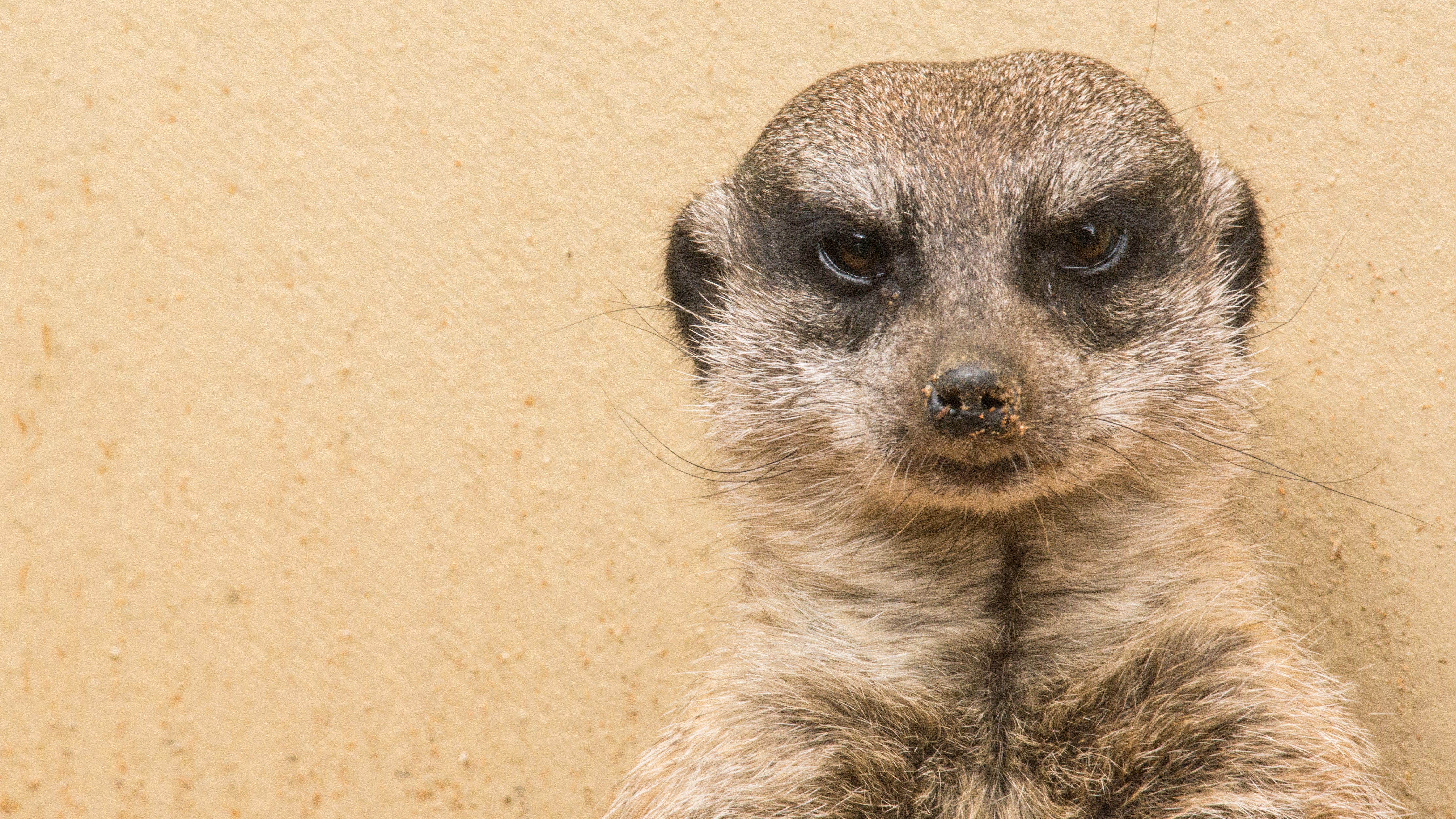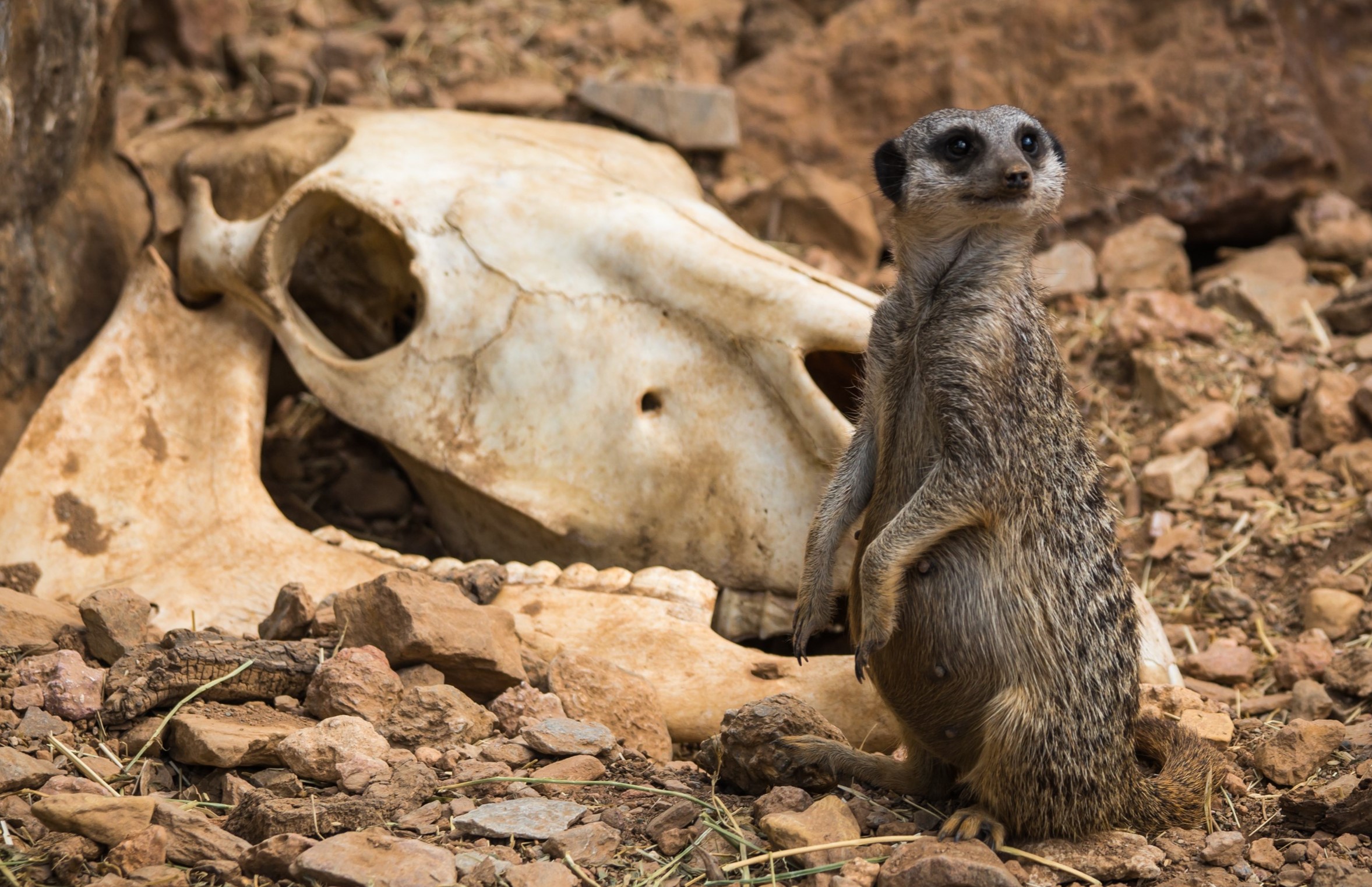Some female meerkats have a brutal, bloodthirsty streak, and now we may know why
Dominant female meerkats' quest for dominance may be down to genes that give them the upper hand.
Meerkats may look cute, but the dominant females are notoriously deadly and will kill female relatives and eat their offspring to suppress reproduction and eliminate future competition. Now, scientists may finally know what helps these murderous matriarchs become dominant — and stay on top.
In a new preprint study posted to the online server bioRxiv, researchers have identified a sex-specific signature of dominance in female meerkats that gives them super-immunity, possibly helping them to maintain their dominant position.
These immune genes were found to closely resemble immunity genes seen in wild male baboons (Papio) where physical competition is crucial to determining rank hierarchies and mating. This suggests immunity and social status are intertwined.
Meerkats (Suricata suricatta) live in family groups, known as mobs, of up to 50 individuals and are led by a female matriarch, who dominates up to 80% of breeding to maintain her control. If a subordinate female attempts to breed, she is evicted from the social group and any offspring are killed. Subordinates of both sexes assist in rearing, enabling dominant females to breed multiple times a year and often live for longer than subordinates.
As a result, there is often an extreme reproductive skew in female meerkats that is unique to the species. Scientists found evidence of one alpha female rearing up to 72 offspring during her lifetime, while lower-ranking females within the social group produced no surviving young. Skewed reproduction is also recorded in male meerkats, with dominant males fathering the most pups.
"In meerkats, females compete for mating opportunities — and can either be very successful, or never have offspring at all — which is a pattern that is unusual in mammal social groups." Jenny Tung, professor of evolutionary anthropology at Duke University and co-author of the study, told Live Science.
The study into 129 wild meerkats (69 males and 60 females) over a three-year period at Kuruman River Reserve in South Africa's Northern Cape Province monitored behavior and agonistic interactions to determine dominance status.
Get the world’s most fascinating discoveries delivered straight to your inbox.
Related: Scientists may have finally figured out how elephants got their incredible trunks
The researchers also took regular blood samples, including at the points where a subordinate became the dominant meerkat and in the weeks and months that followed this societal rejig.
The blood samples showed dominant males and females had higher levels of cortisol — a hormone associated with stress. However dominant female meerkats also had higher androgen levels — a hormone that contributes to growth and reproduction — than their same-sex subordinates, as well as a higher body mass.
In the dominant female meerkats, scientists also found evidence of increased response to an inflammatory stimulus compared with males, suggesting their bodies are better primed to fight infections.
"Our results indicate that social status is important for how immune genes are regulated, not only in primates, but probably more broadly among social animals; and the way this relationship works probably depends on how status is determined and how intensively status shapes reproductive competition," Tung said.
Scientists say the findings support a hypothesis that social status is dependent on the energy needed to achieve dominance, and that if a female achieves it, she puts a lot of energy into maintaining it and producing offspring.
Tung said the findings show that animals' social lives impact molecular processes happening in our cells, and that relationship can change depending on what that status means to a given species.
"We often think about genetics, disease exposure, diet, etc. as important factors that shape how our bodies work — this is additional evidence that social interactions matter a lot too," she said.

Carys Matthews is a freelance writer for Live Science and has a passion for the natural world. Most recently the group digital editor of BBC Wildlife and BBC Countryfile Magazine, she writes about the outdoors, nature and health and fitness. Prior to this she has worked for a number of sports and environmental titles in the U.K.
 Live Science Plus
Live Science Plus







